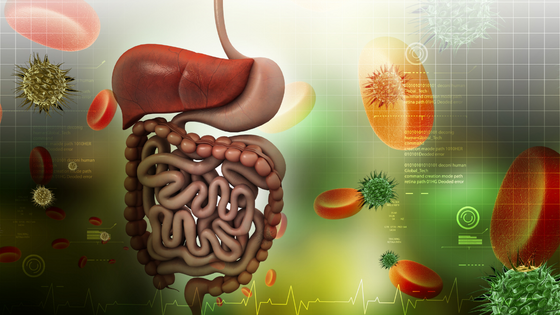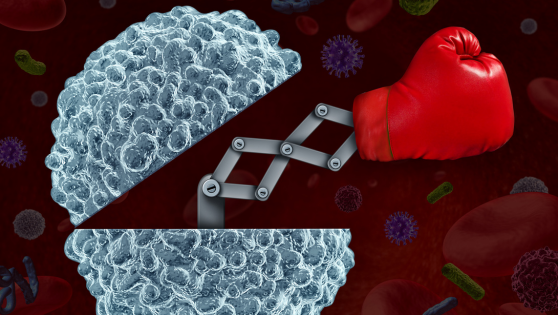Maintaining a healthy digestive system is crucial for overall well-being. Did you know that 95% of your serotonin, a neurotransmitter that affects mood and happiness, is manufactured in your gut? Additionally, approximately 80% of your immune system resides in your gut. These fascinating facts highlight the significant impact that a healthy digestive system has on various aspects of our health.
Many individuals struggle with digestive issues, hormonal imbalances, skin problems, and food intolerances.It's important to recognize that gut bacteria play a pivotal role in immune function, metabolism, mood regulation, sleep quality, and blood sugar balance, among other vital functions. Share on X When the balance of bacteria in the gut is disrupted, it can lead to a wide range of health problems.
The bacteria in our gut not only aids in the digestion of food but also plays a crucial role in absorbing essential nutrients and regulating various bodily functions. However, when the bacteria in the gut are out of balance, it can negatively impact our health and well-being. So, how can we ensure our gut bacteria remain in harmony?
In this blog post, I dive into ten valuable tips to help keep your digestive system healthy. By incorporating these tips into your lifestyle, you can promote optimal digestive health and enhance your overall well-being. Let’s dive in and explore these tips together!
Tip 1: Eat a Balanced Diet

Maintaining a balanced diet is vital for a healthy digestive system. Consuming a variety of nutrients provides the necessary fuel and building blocks for optimal digestive function. Here’s why it’s important:
- Variety of Nutrients: A balanced diet ensures you receive a wide range of vitamins, minerals, and macronutrients essential for digestion and overall health. These nutrients support the production of digestive enzymes, promote proper absorption of nutrients, and aid in the smooth functioning of the digestive system.
- Fiber-Rich Foods: Including fiber in your diet is crucial for maintaining regular bowel movements and preventing constipation. Fiber adds bulk to the stool, promotes healthy digestion, and supports a healthy gut environment. Incorporate sources of dietary fiber such as whole grains, legumes, fruits, and vegetables into your meals.
- Fruits and Vegetables: These natural powerhouses are rich in vitamins, minerals, antioxidants, and fiber. They provide essential nutrients that support digestive health, reduce inflammation, and help prevent digestive disorders. Aim to include a variety of colorful fruits and vegetables in your daily meals to maximize their benefits.
- Limit Processed and Sugary Foods: Processed and sugary foods, such as fast food, sugary beverages, and snacks, can be detrimental to your digestive health. These foods are often low in nutrients, high in unhealthy fats, and can disrupt the balance of gut bacteria. Limiting their consumption reduces the risk of digestive issues, inflammation, and weight gain.
Tips for Eating a Balanced Diet:
- Plan your meals: Include a variety of nutrient-rich foods from different food groups.
- Prioritize whole foods: Choose unprocessed options for better nutrition.
- Practice portion control: Use measuring tools or your hand as a guide.
- Aim for colorful plates: Include a variety of fruits and vegetables.
- Include protein in every meal: Opt for lean sources like poultry, fish, beans, or Greek yogurt.
- Choose healthy fats: Opt for avocados, nuts, seeds, and olive oil.
- Be mindful of added sugars: Check food labels and choose lower-sugar options.
- Don’t forget fiber: Include whole grains, legumes, fruits, and vegetables for digestion and satiety.
- Stay hydrated: Drink water throughout the day.
- Seek professional advice: Consult a registered dietitian or nutritionist for personalized guidance.
By prioritizing a balanced diet that includes a variety of nutrients, fiber-rich foods, and limiting processed and sugary foods, you can optimize your digestive health. Remember, a well-nourished body is better equipped to handle the demands of digestion and maintain a healthy gut environment.
Tip 2: Stay Hydrated

Staying hydrated is crucial for maintaining a healthy digestive system. Water plays a vital role in digestion and helps prevent issues such as constipation. Here’s why it’s important:
- Aid to Digestion: Water helps break down food and facilitates the digestion process. It assists in dissolving nutrients, making them easier for the body to absorb. When you consume an adequate amount of water with meals, it aids in the smooth movement of food through the digestive tract.
- Prevent Constipation: Insufficient water intake can lead to dehydration, which is a common cause of constipation. When the body lacks proper hydration, the colon absorbs more water from the stool, resulting in dry and hard stools. This makes it difficult to pass stool smoothly and can lead to discomfort. Drinking enough water helps soften the stool, allowing for easier elimination and preventing constipation.
- Optimal Gut Function: Water is essential for maintaining a healthy gut environment. It helps regulate the balance of good bacteria in the digestive system, supporting overall gut health. A well-hydrated gut promotes regular bowel movements and prevents digestive issues such as bloating and gas.
Tips for Proper Hydration:
- Drink at least eight 8-ounce glasses of water per day (2 liters or half a gallon), adjusting based on individual needs.
- Carry a reusable water bottle for easy access to water throughout the day.
- Infuse water with fruits like lemon, cucumber, or berries, or add fresh herbs like mint or basil for flavor.
- Use reminders on your phone or hydration apps to stay on track with drinking water.
- Monitor urine color: Pale yellow or straw-colored urine indicates proper hydration, while dark yellow or amber-colored urine suggests dehydration.
Remember, staying hydrated is essential not only for your digestive health but also for overall well-being. Make it a habit to drink an adequate amount of water throughout the day to support optimal digestion and maintain a healthy body.
Tip 3: Practice Portion Control
Practicing portion control and mindful eating is essential for maintaining a healthy digestive system. It involves being aware of the amount of food you consume and listening to your body’s hunger and fullness cues. Here’s why it’s important:
- Benefits of Mindful Eating: Mindful eating involves paying attention to the sensory experience of eating, such as the taste, texture, and aroma of food. By practicing mindful eating, you can foster a healthier relationship with food and enhance digestion. It allows you to savor and enjoy each bite, promoting better digestion and satisfaction from your meals.
- Maintains Digestive Efficiency: Overeating can overwhelm the digestive system and lead to discomfort. When you consume large portions of food, your stomach stretches to accommodate the excess volume, which can strain the digestive organs. This can result in symptoms like bloating, indigestion, and sluggish digestion. Practicing portion control helps maintain the efficiency of the digestive process, allowing for better absorption and utilization of nutrients.
- Weight Management: Portion control plays a crucial role in weight management. By consuming appropriate portion sizes, you can prevent excessive calorie intake, which can contribute to weight gain and obesity. Excess weight can increase the risk of digestive disorders such as acid reflux, gallbladder problems, and irritable bowel syndrome. By practicing portion control, you can support a healthy weight and reduce the likelihood of digestive complications.
Tips for Portion Control:
- Use smaller plates and bowls to create the illusion of a fuller plate.
- Pay attention to hunger and fullness cues. Eat slowly and stop eating when you feel comfortably satisfied, but not overly full.
- Include a variety of foods from different food groups in your meals, ensuring a balance of nutrients.
- Practice mindful eating by focusing on the flavors, textures, and enjoyment of each bite.
- Plan and prepare meals in advance to have better control over portion sizes.
By practicing portion control and mindful eating, you can optimize digestion, prevent discomfort, and support a healthy weight. Remember, it’s not just about what you eat, but also how much you eat that contributes to a healthy digestive system.
Tip 4: Chew Your Food Thoroughly

Chewing your food thoroughly is a simple yet powerful practice for promoting better digestion. It involves taking the time to thoroughly break down your food before swallowing. Here’s why it’s important:
- Breaks Down Food: Chewing mechanically breaks down the food into smaller particles, making it easier for the digestive enzymes to do their job. When you chew your food thoroughly, it increases the surface area of the food, allowing digestive enzymes in your saliva to begin breaking down carbohydrates and initiating the digestive process. This pre-digestion in the mouth sets the stage for efficient digestion in the stomach and intestines.
- Enhances Nutrient Absorption: Thoroughly chewing your food aids in the release of nutrients from the food particles. When food is properly broken down, it becomes easier for the body to extract and absorb the essential nutrients. This improves nutrient absorption and ensures that your body receives the maximum benefit from the foods you consume.
- Slows Down Eating Pace: Chewing your food slowly forces you to eat at a slower pace. This is important because it takes approximately 20 minutes for your brain to register feelings of fullness. By eating more slowly and mindfully, you give your body the chance to recognize when it’s satisfied, helping prevent overeating. Rapid eating, on the other hand, can lead to swallowing air, indigestion, and discomfort.
Tips for Chewing Your Food Thoroughly:
- Take smaller bites of food.
- Chew each bite thoroughly until the food is well-mashed or liquefied.
- Pay attention to the texture and flavors of the food as you chew.
- Put down your utensils between bites to encourage a slower eating pace.
- Minimize distractions while eating, such as watching TV or using electronic devices, to focus on your meal.
By taking the time to chew your food thoroughly, you allow your digestive system to function optimally. It improves the breakdown of food, enhances nutrient absorption, and promotes mindful eating. So, slow down, savor each bite, and give your body the chance to digest and absorb nutrients effectively.
Tip 5: Limit Intake of Trigger Foods
Limiting the intake of trigger foods is crucial for maintaining a healthy digestive system. Certain foods, such as spicy, fatty, or greasy options, can contribute to digestive discomfort and heartburn. Here’s why it’s important to be mindful of these foods:
- Common Trigger Foods: Spicy, fatty, and greasy foods are known to trigger digestive issues in many individuals. Spices like chili peppers, curry, and hot sauces can irritate the lining of the stomach and lead to symptoms such as heartburn, acid reflux, or indigestion. Similarly, fatty and greasy foods, like fried foods or heavy sauces, can take longer to digest and put additional strain on the digestive system.
- Digestive Discomfort and Heartburn: These trigger foods can cause digestive discomfort, including bloating, gas, stomach cramps, and diarrhea. Spicy foods, in particular, can stimulate the production of stomach acid, leading to heartburn or acid reflux. Overconsumption of fatty and greasy foods can slow down the digestion process, resulting in feelings of heaviness and discomfort.
- Moderation or Avoidance: It’s important to be mindful of your body’s response to these trigger foods. While some individuals may be more sensitive to certain spices or fats, others may tolerate them better. If you notice that certain foods consistently cause digestive discomfort or heartburn, it’s wise to limit or avoid them altogether. However, moderation may be possible for individuals who can tolerate these foods in smaller quantities.
Tips for Managing Trigger Foods:
- Pay attention to your body’s response to different foods and identify your personal trigger foods.
- Keep a food diary to track your symptoms and identify patterns.
- Opt for milder spices or seasoning alternatives if you are sensitive to spicy foods.
- Choose lighter cooking methods like grilling, baking, or steaming instead of frying.
- Incorporate a variety of other flavorful herbs and spices into your meals to enhance taste without relying heavily on trigger ingredients.
By limiting the intake of trigger foods, you can reduce the risk of digestive discomfort and heartburn. It’s important to listen to your body, be mindful of your individual tolerance, and make dietary choices that support your digestive well-being. Remember, moderation or avoidance of these trigger foods can contribute to a healthier and more comfortable digestive system.
Tip 6: Maintain a Healthy Weight

Maintaining a healthy weight is crucial for promoting optimal digestive health. There is a strong connection between weight and digestive function, and obesity can significantly contribute to various digestive issues. Here’s why it’s important to prioritize a healthy weight:
- Reduced Risk of Gastrointestinal Disorders: Obesity increases the risk of developing gastrointestinal disorders such as gastroesophageal reflux disease (GERD), gallbladder disease, fatty liver disease, and colorectal cancer. Excess weight puts pressure on the digestive organs and can disrupt their proper functioning, leading to chronic digestive problems.
- Improved Digestive Efficiency: Carrying excess weight can slow down the digestive process. It can lead to delayed gastric emptying, reduced intestinal motility, and impaired nutrient absorption. Maintaining a healthy weight helps optimize the efficiency of the digestive system, allowing for better digestion and absorption of nutrients.
- Prevention of Acid Reflux and Heartburn: Obesity is a known risk factor for acid reflux and heartburn. Excess weight can increase pressure on the lower esophageal sphincter (LES), the valve that prevents stomach acid from flowing back into the esophagus. This can lead to the symptoms of acid reflux and heartburn. By maintaining a healthy weight, you can reduce the pressure on the LES and minimize the risk of these conditions.
Tips for Maintaining a Healthy Weight:
- Adopt a balanced and nutritious diet that includes a variety of fruits, vegetables, whole grains, lean proteins, and healthy fats.
- Practice portion control and mindful eating to avoid overeating.
- Engage in regular physical activity to support weight management and promote a healthy metabolism.
- Get enough sleep as lack of sleep can contribute to weight gain and disrupt digestive processes.
- Manage stress levels, as chronic stress can lead to weight gain and unhealthy eating habits.
By maintaining a healthy weight, you can reduce the risk of digestive disorders, enhance digestive efficiency, and promote overall digestive well-being. It’s important to adopt a holistic approach that combines a healthy diet, regular exercise, proper sleep, and stress management to achieve and maintain a healthy weight for optimal digestive health.
Tip 7: Exercise Regularly

Regular physical activity is not only beneficial for your overall health but also plays a significant role in promoting a healthy digestive system. Engaging in exercise can provide numerous benefits for digestion. Here’s why it’s important to incorporate regular exercise into your routine:
- Improved Digestive Function: Exercise stimulates the muscles of the gastrointestinal tract, promoting better digestion and regular bowel movements. It helps to increase the speed at which food moves through the digestive system, reducing the risk of constipation. Regular exercise can also improve intestinal muscle tone and reduce the likelihood of digestive issues such as bloating and gas.
- Enhanced Metabolism: Physical activity boosts metabolism, helping your body efficiently convert food into energy. A higher metabolic rate can improve the digestion and absorption of nutrients, ensuring that your body receives the necessary fuel for optimal functioning. This can also aid in weight management, which is crucial for digestive health.
- Stress Reduction: Exercise is known to reduce stress levels, which can have a positive impact on digestion. Stress and anxiety can disrupt digestive processes and contribute to issues such as indigestion, acid reflux, and irritable bowel syndrome (IBS). Regular exercise helps to reduce stress hormones, promote relaxation, and support a healthier gut-brain connection.
Tips for Incorporating Regular Exercise:
- Aim for at least 150 minutes of moderate-intensity aerobic exercise or 75 minutes of vigorous-intensity exercise per week, as recommended by health experts.
- Choose activities you enjoy, such as brisk walking, jogging, cycling, swimming, or dancing, to make exercise more enjoyable and sustainable.
- Incorporate regular movement throughout the day, such as taking the stairs instead of the elevator, parking farther away to walk more, or scheduling short breaks for stretching and walking during sedentary periods.
- Consider adding strength training exercises to your routine, as they can help improve muscle tone and support overall physical health.
- Stay hydrated before, during, and after exercise to support proper digestion and prevent dehydration.
By incorporating regular exercise into your lifestyle, you can improve digestive function, enhance metabolism, and reduce stress levels. Find activities that you enjoy and make them a consistent part of your routine to support optimal digestive health. Remember to consult with a healthcare professional before starting any new exercise regimen, especially if you have any underlying health conditions.
Tip 8: Manage Stress Levels

Managing stress is essential for maintaining a healthy digestive system. Stress and digestive problems are closely linked, as high-stress levels can disrupt the normal functioning of the digestive tract and contribute to various digestive issues. Here’s why it’s important to prioritize stress management:
- Impact of Stress on Digestion: Stress triggers the release of stress hormones like cortisol, which can interfere with digestion. It can lead to a range of digestive problems, including stomachaches, diarrhea, constipation, bloating, and irritable bowel syndrome (IBS). Stress can also worsen symptoms of existing digestive conditions such as acid reflux or inflammatory bowel disease (IBD).
- Gut-Brain Connection: The gut and brain are intricately connected through the gut-brain axis. Stress and emotions can directly influence gut health and vice versa. The gut contains a significant portion of the body’s serotonin, a neurotransmitter that regulates mood and contributes to feelings of well-being. Chronic stress can disrupt this delicate balance, affecting digestion and overall well-being.
- Stress Reduction Techniques: Managing stress effectively can help alleviate digestive problems and promote better gut health. Various stress management techniques can be beneficial, such as:
Tips for Incorporating Stress Management:
- Meditation: Engaging in regular meditation practice can help reduce stress, promote relaxation, and improve overall well-being. Set aside a few minutes each day to practice mindfulness or deep breathing exercises.
- Yoga: Practicing yoga combines physical movement with breath control and meditation. It can help reduce stress, improve digestion, and enhance mind-body awareness. Consider joining a yoga class or following online tutorials.
- Exercise: Physical activity, as mentioned in Tip 7, is an effective stress reducer. Regular exercise helps release endorphins, which are natural mood boosters, and promotes a sense of well-being. Find activities that you enjoy and make them a part of your routine.
- Prioritize Self-Care: Engage in activities that bring you joy and help you relax, such as reading, listening to music, taking baths, spending time in nature, or pursuing hobbies. Setting aside time for self-care can help alleviate stress and support a healthier digestive system.
- Seek Support: If stress and anxiety become overwhelming, don’t hesitate to seek support from a mental health professional. They can provide guidance and techniques tailored to your individual needs.
By managing stress levels, you can support a healthier digestive system and overall well-being. Incorporate stress reduction techniques into your daily routine, and remember to listen to your body’s cues and take breaks when needed. Prioritizing stress management is an important aspect of maintaining digestive health.
Tip 9: Get Sufficient Sleep

Getting enough restorative sleep is vital for maintaining a healthy digestive system. Sleep deprivation can have a significant impact on digestion and overall gastrointestinal health. Here’s why it’s important to prioritize sufficient sleep:
- Disrupted Digestive Processes: Lack of sleep can disrupt the normal functioning of the digestive system. It can affect the release of hormones that regulate appetite, such as ghrelin and leptin, leading to increased hunger and potential overeating. Sleep deprivation can also disrupt the balance of gut bacteria, potentially contributing to digestive disorders.
- Increased Risk of Digestive Issues: Insufficient sleep has been linked to an increased risk of various digestive issues, including gastroesophageal reflux disease (GERD), peptic ulcers, and inflammatory bowel disease (IBD). It can also exacerbate symptoms of existing conditions like irritable bowel syndrome (IBS). Lack of sleep weakens the immune system, making the body more susceptible to infections that can affect the gastrointestinal tract.
- Restoration and Repair: Sleep provides an opportunity for the body to rest, repair, and restore itself. During sleep, the body works on healing and rejuvenating different systems, including the digestive system. Sufficient sleep allows the body to regulate and optimize digestive functions, ensuring proper nutrient absorption and waste elimination.
Tips for Getting Sufficient Sleep:
- Establish a regular sleep schedule by going to bed and waking up at consistent times, even on weekends.
- Create a bedtime routine that promotes relaxation, such as reading a book, taking a warm bath, or practicing relaxation techniques.
- Create a sleep-friendly environment by ensuring your bedroom is cool, quiet, and dark. Consider using earplugs, eye masks, or white noise machines if necessary.
- Limit exposure to electronic devices, especially before bedtime, as the blue light emitted by screens can interfere with sleep.
- Avoid consuming caffeine or stimulating substances close to bedtime, as they can disrupt sleep patterns.
- Prioritize stress management, as high levels of stress can negatively impact sleep quality. Incorporate relaxation techniques like meditation or deep breathing exercises into your daily routine.
By getting sufficient, restorative sleep, you can support proper digestion, reduce the risk of digestive issues, and promote overall well-being. Make sleep a priority in your daily routine and implement healthy sleep habits to optimize your digestive health.
Tip 10: Seek Professional Help if Needed

If you’re experiencing persistent digestive issues, it’s important to seek the assistance of a healthcare professional. Early detection and treatment of digestive problems can make a significant difference in your overall digestive health. Here’s why it’s crucial to consult with a professional:
- Proper Diagnosis: Digestive issues can have various underlying causes, and accurately identifying the root cause is essential for effective treatment. A healthcare professional, such as a gastroenterologist or primary care physician, can conduct a thorough evaluation, perform necessary tests, and provide a proper diagnosis. This ensures that you receive appropriate treatment tailored to your specific condition.
- Treatment Guidance: A healthcare professional can guide you through the treatment process and provide evidence-based recommendations. They can prescribe medications if necessary, suggest dietary modifications, and offer lifestyle advice to manage and alleviate your digestive symptoms. Their expertise and experience can help you navigate your digestive health journey more effectively.
- Prevention of Complications: Seeking professional help early on can help prevent complications associated with untreated or poorly managed digestive conditions. Prompt diagnosis and treatment can minimize the risk of further complications, improve your quality of life, and prevent potential long-term damage to your digestive system.
Tips for Seeking Professional Help:
- Keep a journal documenting your symptoms, their duration, and any factors that seem to trigger or worsen them. This information can help your healthcare professional better understand your condition.
- Be prepared for your appointment by writing down questions or concerns you have about your digestive health. This ensures that you address all your concerns during the consultation.
- Be honest and thorough when discussing your symptoms and medical history with the healthcare professional. Providing accurate information helps them make an accurate diagnosis and develop an appropriate treatment plan.
- If you’re unsure which healthcare professional to see, start by scheduling an appointment with your primary care physician. They can provide guidance and refer you to a specialist if necessary.
Remember, everyone’s digestive health is unique, and what works for one person may not work for another. Seeking professional help allows for personalized care and guidance to address your specific digestive concerns effectively. Don’t hesitate to reach out to a healthcare professional if you experience persistent digestive issues that affect your daily life and well-being. Your proactive approach can lead to early intervention, effective treatment, and improved digestive health.
Tips Summary
Maintaining a healthy digestive system is essential for overall well-being and optimal health. By implementing the following ten tips, you can support your digestive health and experience improved digestion and overall vitality:
- Eat a Balanced Diet: Consume a variety of nutrients, including fiber-rich foods, fruits, vegetables, and whole grains. Limit processed and sugary foods to promote a healthy gut.
- Stay Hydrated: Adequate water intake aids digestion and prevents constipation. Ensure you drink enough water throughout the day.
- Practice Portion Control: Adopt mindful eating and be mindful of portion sizes to prevent overeating and promote healthy digestion.
- Chew Your Food Thoroughly: Chew your food properly to aid digestion and enhance nutrient absorption.
- Limit Intake of Trigger Foods: Be cautious of spicy, fatty, or greasy foods that can lead to digestive discomfort or heartburn. Practice moderation or avoidance of such foods.
- Maintain a Healthy Weight: Prioritize a healthy weight to reduce the risk of digestive disorders and improve digestive efficiency.
- Exercise Regularly: Engage in aerobic exercises and regular movement to stimulate the gastrointestinal tract and support better digestion.
- Manage Stress Levels: Control stress to avoid disruption of digestive processes and foster a healthy gut-brain connection.
- Get Sufficient Sleep: Prioritize restorative sleep to promote digestive health and reduce the risk of digestive issues.
- Seek Professional Help if Needed: Consult a healthcare professional for persistent digestive issues to receive proper diagnosis, treatment, and preventive care.
Remember that a healthy digestive system contributes to overall well-being by supporting nutrient absorption, immune function, and mood regulation. Incorporating these tips into your lifestyle can lead to improved digestive health and a better quality of life.
As you embark on your journey to better digestive health, be patient with yourself and allow time for positive changes to take effect. Small, consistent steps towards healthier eating habits, regular exercise, stress management, and good sleep can make a significant difference. Always listen to your body and seek professional advice if you encounter persistent digestive concerns.
Improving your digestive health is a lifelong process, and every positive choice you make contributes to your overall well-being. By prioritizing your digestive health, you are investing in a healthier, happier, and more vibrant future.
If you are looking for more tips and support, join me over on my group page, The Village – A Natural HEALing Community, to get tons of information, tips and recipes to help you take your HEALTHY EATING and ACTIVE LIVING to the next level.
References:
- American Heart Association: “The Importance of a Balanced Diet” by American Heart Association (URL: https://www.heart.org/en/healthy-living/healthy-eating/eat-smart/nutrition-basics/the-importance-of-a-balanced-diet)
- Mayo Clinic: “Water: How Much Should You Drink Every Day?” by Mayo Clinic Staff (URL: https://www.mayoclinic.org/healthy-lifestyle/nutrition-and-healthy-eating/expert-answers/water/faq-20460568)
- Harvard Health Publishing: “Mindful Eating” by Harvard Health Publishing (URL: https://www.health.harvard.edu/staying-healthy/mindful-eating)
- MedlinePlus: “Chew Your Food” by MedlinePlus, U.S. National Library of Medicine (URL: https://medlineplus.gov/chewyourfood.html)
- International Foundation for Gastrointestinal Disorders (IFFGD): “Eating, Diet, & Nutrition for GER & GERD” by IFFGD (URL: https://www.iffgd.org/other-disorders/eating-diet-nutrition.html)
- National Institute of Diabetes and Digestive and Kidney Diseases (NIDDK): “The Digestive System & How it Works” by NIDDK (URL: https://www.niddk.nih.gov/health-information/digestive-diseases/digestive-system-how-it-works)
- Mayo Clinic: “Exercise: 7 Benefits of Regular Physical Activity” by Mayo Clinic Staff (URL: https://www.mayoclinic.org/healthy-lifestyle/fitness/in-depth/exercise/art-20048389)
- Harvard Health Publishing: “Stress Management: Approaches to Preventing and Reducing Stress” by Harvard Health Publishing (URL: https://www.health.harvard.edu/staying-healthy/stress-management-approaches-to-preventing-and-reducing-stress)
- National Sleep Foundation: “How Sleep Affects Digestion” by National Sleep Foundation (URL: https://www.sleepfoundation.org/nutrition/sleep-affects-digestion)
- American College of Gastroenterology: “Digestive Health Tips” by American College of Gastroenterology (URL: https://gi.org/topics/digestive-health-tips/)
Note: The above reference links are for informational purposes only, and it’s always recommended to consult healthcare professionals for personalized advice and guidance.






+leave a comment . . .